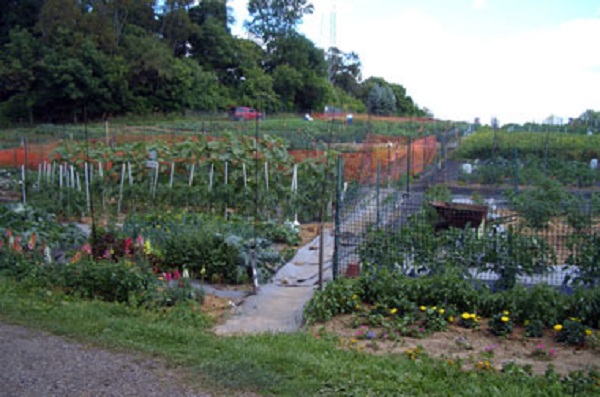
The Sunday News

Dumisani Nsingo, Senior Farming Reporter
WHAT started as small horticultural projects to improve food security, and nutritional levels of vulnerable members of the community in Bulawayo’s high density suburbs has turned into livelihoods enhancement schemes.
A decade-and-a-half ago, the Bulawayo City Council availed portions of land in most of its high-density suburbs which were turned into community gardens targeting not more than 100 members per scheme.
Beneficiaries of these agricultural enterprises included the aged, widows, people living with HIV and Aids and orphans.
Boreholes to water the 45 schemes were drilled by various non-governmental organisations who also provided other support infrastructure such as fencing.
Initially, beneficiaries were aiming at improving food security and nutritional levels for themselves but over the years the projects have grown to become income generating initiatives for most of the beneficiaries.
“The community gardens have played a big part in ensuring food security at most of the beneficiaries’ homes, this includes improving nutritional levels since we grow a wide variety of vegetables. However, this scheme have not only come in handy in terms of ensuring food for us, it has also greatly improved the livelihood of most of our members as we are now generating substantial income from selling the produce. We are now able to buy household commodities using the money realised from the project,” said Mr Sabelo Ndlovu (62) of Khuluma Usenza Community Garden in Nkulumane suburb.
Mr Ndlovu, together with his wife are living with six orphaned grandchildren following the death of his two daughters.
His eldest grandchild is 21 and unemployed.
He said although there was a readily available market for their produce at the suburb, the project’s viability was being affected by rampant thefts at the gardens.
“The market for our produce is there but most members are now being discouraged from effectively cropping their allotted beds due to theft,” he said.
The chairman of Sibambene Community Garden in Entumbane, Mr Jephrecy Mtoriki, said the garden projects were playing a pivotal role in ensuring household food security for the beneficiaries.
“Apart from providing food to beneficiaries, we also sell produce from the community garden and in actual fact we are failing to satisfy the demand as some residents end up going to buy at the vegetable markets in town. I am unemployed and I largely depend on what I realise from the garden to pay for my children’s fees,” said Mr Mtoriki.
He said most of the scheme’s 100 beneficiaries were elderly people and as such were facing difficulties in drawing water for irrigating using the manual borehole system.
“We are in the process of raising funds to put up a solar infrastructural system to power water pumps because most of our members are old and are having difficulties to pump out water from the borehole,” he said.
Bulawayo Agritex provincial horticulture specialist Mrs Treggie Mpofu said the community gardens were key in encouraging maximum utilisation of small space to generate income.
“These community gardens are really viable. You realise that most of them were donor funded by non-governmental organisations while as the Department of Agricultural Technical and Extension Services we came in to offer technical expertise, designing the plots including the vegetable beds as well as advising them on which crops to grow.
“Since their inception these gardens were meant for the vulnerable members of the community, these are the orphaned, people living with HIV and Aids and the aged and were for ensuring nutrition and food security at household levels. However, it was realised that after ensuring household food security there was a need for the beneficiaries to get income from the surplus,” she said.
Mrs Mpofu said some of community gardens were now viable since their members embraced running them as business entities.
“You realise that there are some like Umthombo Wesizwe in Entumbane that are selling the bulk of their vegetables to health institutions and individuals in their communities realising substantial sums of money and they have even opened bank accounts while others are running money savings schemes. Most of them have constitutions detailing their operations.
“The gardens make the beneficiaries self-sustainable. We encourage them to improve the fertility of their soils using the resources at their disposal like manure though sometimes we do seek fertilisers for them from various organisations. In terms of income, it seems most of them are realising some cash through selling chomolia as produce like carrots are prone to thefts,” she said.
Bulawayo and Matabeleland North Agritex provincial agronomist Mr Davison Masendeke said effective profitability of community gardens depended on beneficiaries’ ability to embrace market intelligence with them adhering to what he termed the Four Ps, these being the Product, Place, Promotion and Price.
“In terms of products one has to know what produce is needed by people and at what time of the year. Sometimes you find that the availability of vegetables on the market fluctuates. There might be a glut and sometimes the demand might be high because of the effects of frost when its winter and even during the rainy season which tends to bring with it numerous diseases thus for one to attain better yields extra precautions must be put in place to guard against these challenges.
“Then when it comes to promotion they should advertise themselves but showcasing the advantages they have over their competitors and of course this has to do with the issue of quality which is determined by proper crop management,” said Mr Masendeke.
Agritex has over the years held agricultural shows for all the community gardens in the city in an effort to encourage them to grow competitive produce with prizes such as wire mash, wheelbarrows, hose pipes, watering cans among other farming implements being given to winners.
@DNsingo



